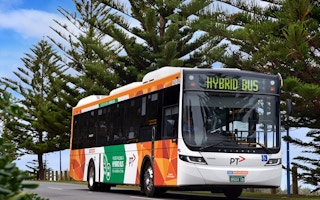ComfortDelGro, one of the world’s largest transport companies, has committed to reduce its carbon footprint by signing up to the Science-Based Targets initiative (SGTi).
To continue reading, subscribe to Eco‑Business.
There's something for everyone. We offer a range of subscription plans.
- Access our stories and receive our Insights Weekly newsletter with the free EB Member plan.
- Unlock unlimited access to our content and archive with EB Circle.
- Publish your content with EB Premium.
The Singapore-headquartered firm, which runs taxis, buses and trains in seven countries, announced on Tuesday (16 March) that it aims to set science-based targets over the next two years to reduce its emissions in line with the Paris Agreement on climate change.
Replacing diesel and petrol buses and taxis with electric vehicles, using more renewable energy and improving energy efficiency are among the measures the company said it will take to reduce its carbon exposure.
The firm noted that some parts of the business had already been running low-carbon transport options, such as electric buses in the United Kingdom and electric taxis in China, and that it would be trialing hydrogen fuel cell buses.
New measures would be rolled out “in stages and across our operations,” a spokesperson told Eco-Business, without giving a timeframe.
In a busy period for decarbonisation in the transport sector, ComfortDelGro’s announcement comes the week after news of Southeast Asian ride-hailing companies Gojek and Grab working on their own plans to curb carbon exposure. ComfortDelGro signalled its intention to move into the ride-hailing sector in Singapore last month, and plans to launch a lifestyle and mobility app that would compete with Grab and Gojek.
ComfortDelGro’s chief executive, Yang Ban Seng, said that the Covid-19 pandemic had prompted a review of its business and the recognition that the firm needed to step up its sustainability efforts. “Sustainability is not just a catchphrase to us,” he said in a press release.
As well as pledging to decarbonise, ComfortDelGro is to invest S$50 million (US$37 million) in clean energy research through a partnership with National University of Singapore (NUS). Part of the fund will go into a green tech lab called Smart & Sustainable Mobility Living Lab, but the bulk will go into electrifying the fleet of buses used on the NUS campus.
In February, the government unveiled a “Green Plan” that promised more support for electric vehicles and charging infrastructure in the city-state.










